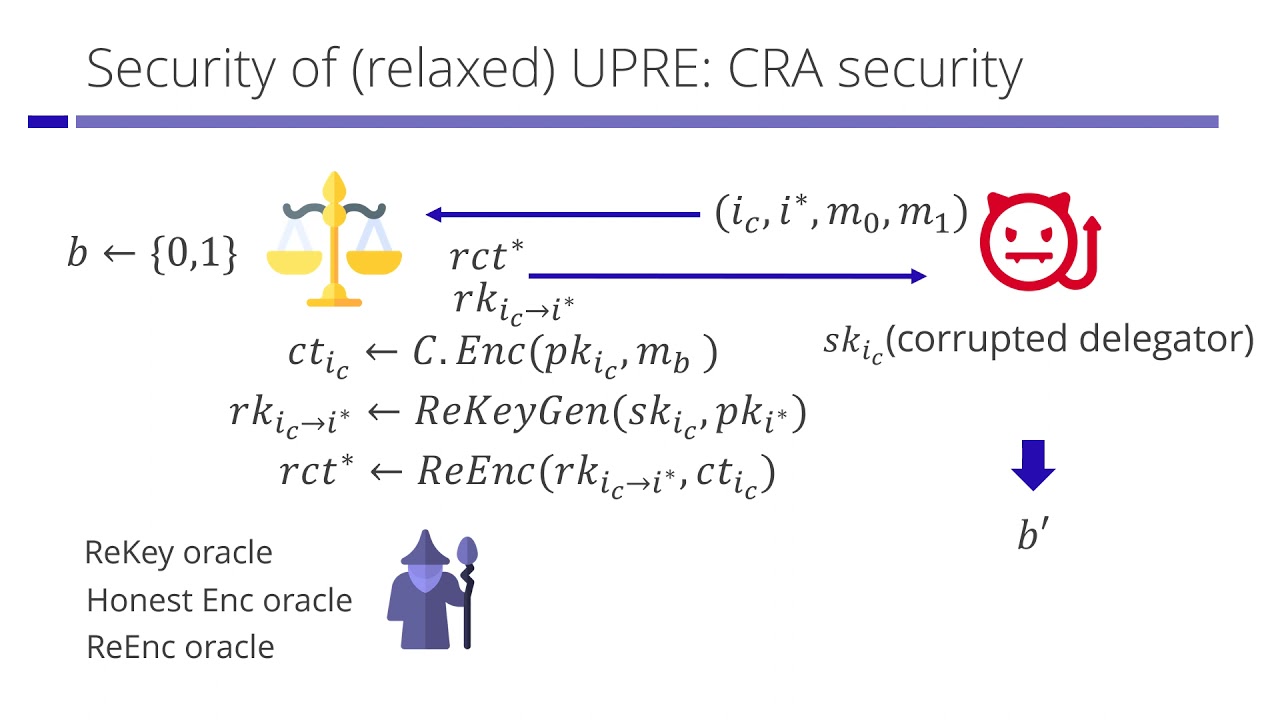Welcome to the resource topic for 2018/840
Title:
Universal Proxy Re-Encryption
Authors: Nico Döttling, Ryo Nishimaki
Abstract:We put forward the notion of universal proxy re-encryption (UPRE). A UPRE scheme enables a proxy to convert a ciphertext under a (delegator) public key of any existing public-key encryption (PKE) scheme into another ciphertext under a (delegatee) public key of any existing PKE scheme (possibly different from the delegator one). The proxy has a re-encryption key generated from the delegator’s secret key and the delegatee public key. Thus UPRE generalizes proxy re-encryption by supporting arbitrary PKE schemes and allowing to convert ciphertexts into ones of possibly different PKE schemes. In this work, we - provide syntax and definitions for both UPRE and a variant we call relaxed UPRE. The relaxed variant means that decryption algorithms for re-encrypted ciphertexts are slightly modified but still only use the original delegatee secret keys for decryption. - construct a UPRE based on probabilistic indistinguishability obfuscation (PIO). It allows us to re-encrypt ciphertexts polynomially many times. - construct relaxed UPRE from garbled circuits (GCs). We provide two variants of this construction, one which allows us to re-encrypt ciphertexts polynomially many times, and a second one which satisfies a stronger security requirement but only allows us to re-encrypt ciphertexts a constant number of times.
ePrint: https://eprint.iacr.org/2018/840
Talk: https://www.youtube.com/watch?v=oStujVCf3lE
See all topics related to this paper.
Feel free to post resources that are related to this paper below.
Example resources include: implementations, explanation materials, talks, slides, links to previous discussions on other websites.
For more information, see the rules for Resource Topics .
